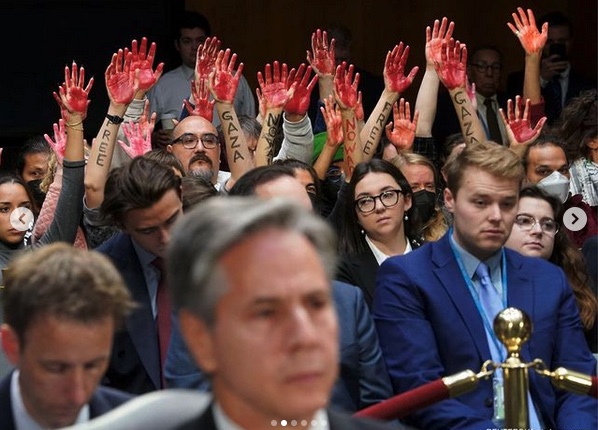We are nearing the end of the sixth day (in West Asia) of the daily ‘humanitarian pauses’ that have been painstakingly negotiated between the Hamas military/political leadership and their Israeli counterparts, via a trail that goes through Qatar and Egypt, with the Biden administration also eager to take a lot of credit. The first of those pauses was agreed to be four days long, then there was a two-day extension. Right now there are reports that Hamas is offering a further extension of two or even more days, on basically similar terms.
These arrangements have four well-known components: a strong bilateral restriction on conducting hostilities; Hamas’s release of an agreed daily number woman, children, and non-Israeli captives; Israel’s release of an agreed daily number of Palestinians women and children captives, on a basis of 3-to-1; and Israel’s “permission” to aid organizations to send an agreed number of aid trucks into Gaza, in an agreed manner, each day.
The fact that these terms have been largely met by both sides for six days is very significant. Primarily, it shows that Hamas’s command-and-control apparatus in Gaza remained fundamentally intact even after the extreme pounding (bombing from land, sea, and air, use of large tank and other ground-force formations, etc) that Israel inflicted on Gaza for seven weeks prior to the start of the ‘pauses’. Hamas showed it was able to abide by the ceasefire provisions and impose discipline on other Gaza groups that might have sought not to. Hamas showed it was able to organize at least one release of hostages from within the (northern) environs of Gaza City, which the IDF had previously encircled and on which it had inflicted a terrible, Dresden/Stalingrad degree of damage.
I also want to give a strong and awed shoutout to the resilience, dignity, and commitment of the people of Gaza. They have suffered almost unimaginable harm over the past 54 days. The Government Media Office there reports that “more than 15,000 Palestinians have been killed in Gaza, including about 6,150 children and 4,000 women.” Untold thousands have been injured. 1.7 million Gaza Palestinians have been displaced. Most of the Strip’s hospitals and many other public-use buildings have been destroyed. Schools have been turned into refugee camps (and several of them also destroyed.) The ‘pauses’ allowed many Gazans to go out and about and to see the extent and degree of the physical damage, and also to see the remains of unburied corpses on the streets and in pancaked buildings. Despite all this, there have been very few mass melees around arriving aid trucks. On the day that cooking gas was delivered to a station in central Gaza, Gazans arranged their families’ gas canisters in an orderly line that reportedly stretched for two kilometres.
Continue reading “The record of Gaza’s ‘humanitarian pauses’”


